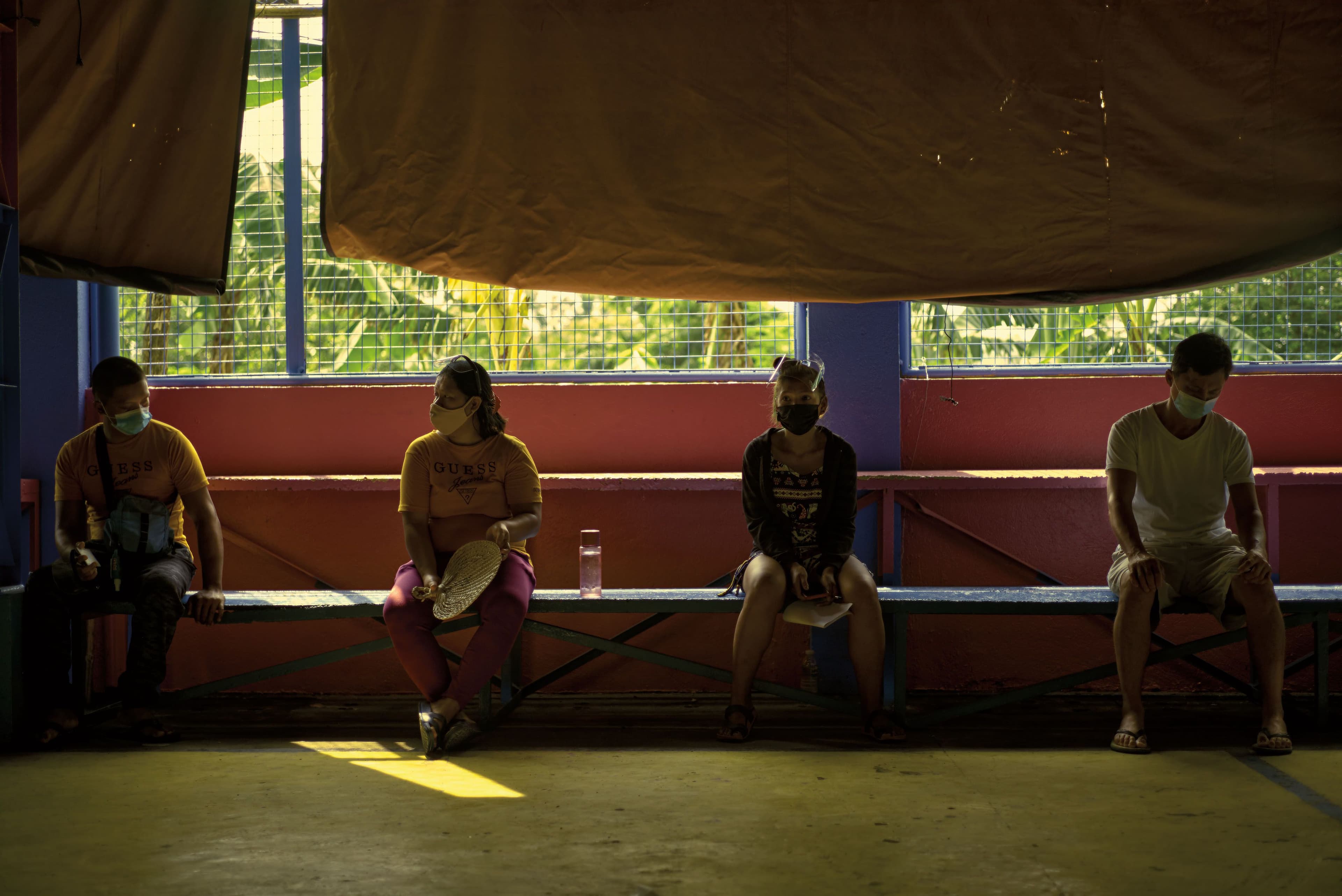
The Covid-19 Resistance
Covid-19 descended upon the Philippines in January 2020 just as the country was emerging from the sudden eruption of the Taal Volcano, which shot towers of black ash and steam miles into the sky thirty miles south of Manila. Local relief groups were sheltering, feeding, and providing medical care for the thousands of evacuees, “and then the pandemic came in,“ says Judy Taguiwalo of CURE Covid, an organization that connected many of those groups to form an expansive humanitarian supernetwork with a single goal baked into its name: Citizens’ Urgent Response to End (CURE) Covid-19.
President Rodrigo Duterte, a controversial strongman with a history of using violence to impose his policies, plunged metropolitan Manila, a megacity of over twelve million people, into its first of many police-enforced lockdowns on March 15, 2020. That same day, CURE Covid’s member organizations united by starting a Facebook group “calling out the government for the militarized response,“ explains Taguiwalo, a longtime activist, social worker, and one of the group’s spokespersons.
By the time Duterte’s administration began to respond to the pandemic, the virus had already been circulating in the country of 110 million inhabitants for months. (The first Covid-19 death outside of China was documented in the Philippines in February 2020.) Instead of channeling funding into PPE, public health education, healthcare, and poverty relief, it bolstered the police, giving them license to enforce the lockdown, in some cases with violence: Earlier this year, a man died after being punished by the police for breaking a 6 PM curfew. “Rather than considering the virus as a health issue, it was considered a peace and order issue,“ says Taguiwalo. Meanwhile, many of the country’s 2.3 million overseas workers were returning to the country but were unable to travel back to their hometowns. The nation’s poor, whose lives revolve around earning their daily meal, faced starvation. “They couldn’t work during the day,“ Taguiwalo explains. “What they needed was relief. And this is what the different organizations in CURE Covid did.“
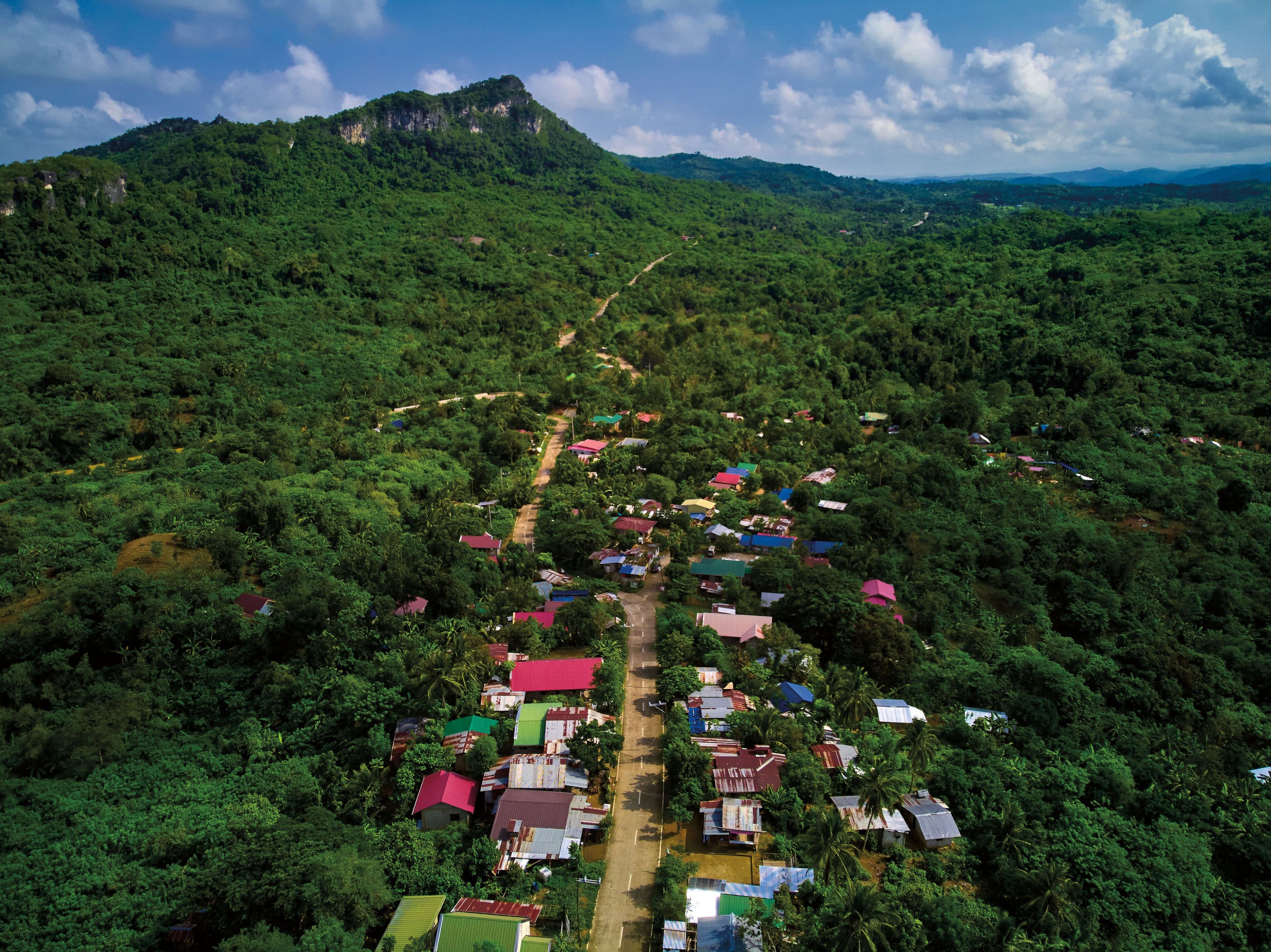
The member groups set up food pantries and community kitchens, disseminated information about Covid-19 within villages, gathered PPE, and made the rounds within neighborhoods to check on the sick and elderly. When it became clear that the lockdown would last more than a month, CURE Covid organizers met via Zoom to organize biweekly public information briefings that would be live-streamed on Facebook, which, with an estimated eighty-eight million users in the Philippines, is by far the most-used social network in the country.
Experts used the briefings to address community concerns head-on. Some had a clear health angle, like “Issues on the Use of Unauthorized Vaccines: Safety, Efficacy, Legality and Equity,“ led by physicians; others addressed social justice issues, like “Covid-19 in our jails, the untold danger,“ which Taguiwalo helmed. She points out that the CURE Covid network includes both grassroots organizations—run by churches, peasant groups, teachers, and youth groups—as well as academic councils involving lawyers, doctors, and economists. “That’s the unique element of our network,“ she says. Good activism, she explains, requires an understanding of both “book knowledge“ and the “life experiences“ of marginalized people.
Taguiwalo speaks from decades of experience: In the Seventies, after former president Ferdinand Marcos declared martial law in the Philippines, a teenage Taguiwalo was jailed for her role in organizing a radical women’s liberation group, MAKIBAKA—the Filipino word for “struggle.“ (To this day, activists chant, “Makibaka, huwag matakot,“ or “Here to struggle, don’t be afraid.“) After her release from prison, she became a pioneering professor of gender studies at the University of the Philippines, a centuries-old bastion of student activism. In 2016, she was appointed by Duterte as the national Social Welfare Secretary but within months became one of many left-leaning politicians ousted by the Commission on Appointments, a powerful government agency.
Now seventy-one, Taguiwalo’s fight for justice has not slowed. “This has been one of the darkest moments in our history since martial law,“ she says. Duterte’s government has been condemned for its extrajudicial killings—an estimated twenty-seven thousand people have died in his attempt to rid the country of drug dealers and users—and last year it silenced the country’s largest television network, ABS-CBN, for its criticism of his leadership, echoing the actions of the Marcos regime decades ago. “We thought it would never happen again,“ says Taguiwalo.
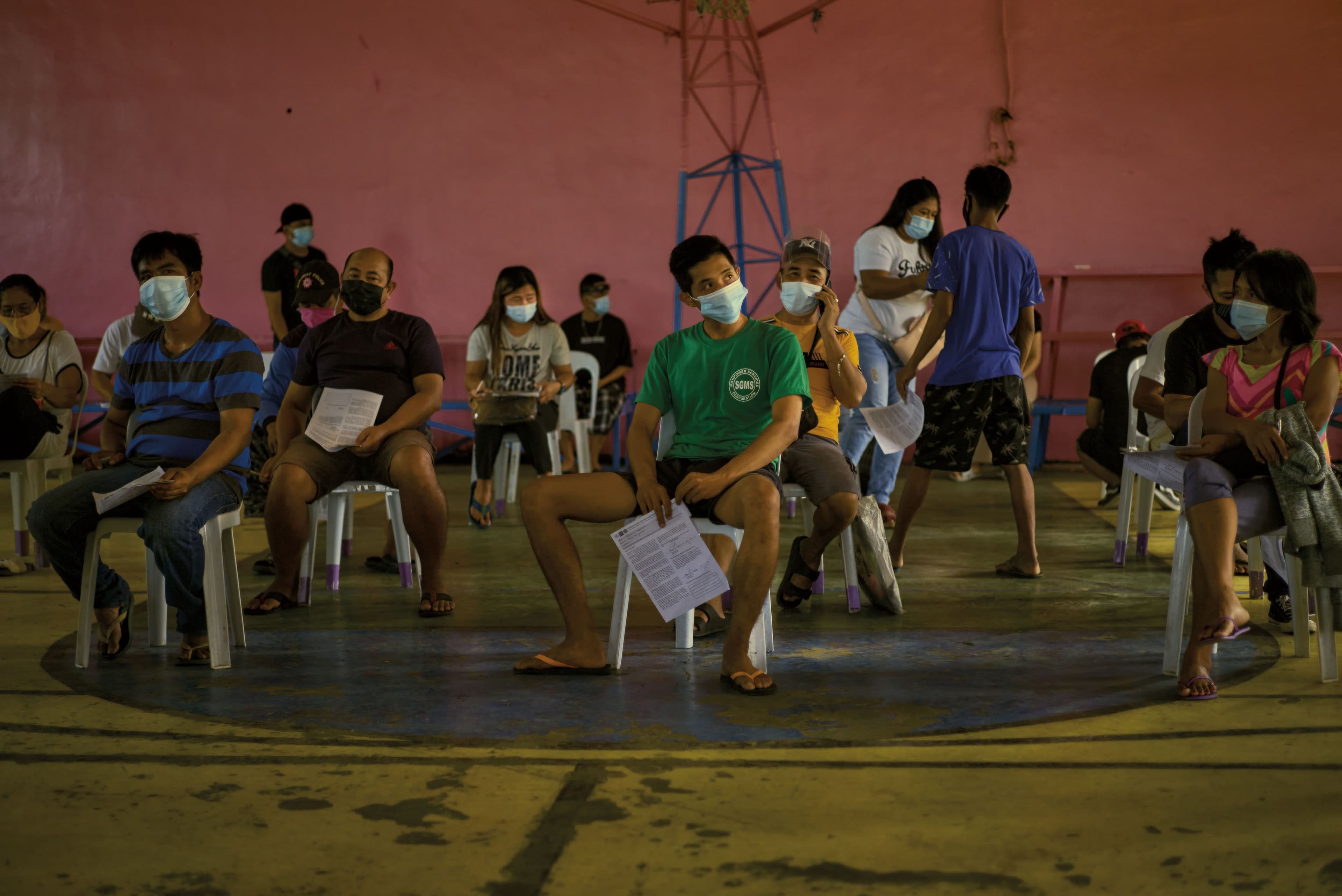
Now, with over 2.8 million Covid-19 cases and 44,521 deaths, the Philippines is the hardest-hit country in Southeast Asia after Indonesia. But as recently as this May, Duterte maintained that the Philippines was “doing good,“ echoing the refrain of populist leaders around the world, like Brazil’s Jair Bolsonaro, Mexico’s Andrés Manuel López Obrador, India’s Narendra Modi, and Donald Trump, all of whom prioritized controlling the narrative around Covid-19 instead of the spread of virus.
The anti-science thinking championed by such leaders has allowed misinformation about Covid-19 and vaccines to proliferate, and their citizens have experienced some of the worst coronavirus outbreaks worldwide as a result. As Yascha Mounk, a senior fellow for the Council of Foreign Relations, wrote this May, “It turns out that it really does matter for the well-being of the public whether politicians care about their citizens, believe in science, and are constrained by checks and balances that can rein them in when they go off the rails.“
The impacts of poor leadership during a pandemic can extend beyond the borders of any one country: When the coronavirus is left unchecked, it has more chances to gain harmful mutations and form new variants, which then can spread through travel. For instance, the P.1 (or gamma) variant that emerged from Brazil’s hard-hit Manaus region has spread to at least seventy nations. Widespread global vaccination could significantly slow the emergence of new variants, but it remains a threat—to humans everywhere—as long as vaccine inequity is permitted to exist. Reaching global herd immunity is a pipe dream if only people in wealthy countries have access to vaccines.
Activists around the world, including CURE Covid, have called on rich nations to stop hoarding doses. They’ve also demanded that world leaders lift intellectual property rights on Covid-19 vaccines, which would allow less wealthy nations to manufacture inexpensive copies of the vaccines. American President Joe Biden has faced backlash for supporting this idea, which has faced resistance from the pharmaceutical industry, together with Britain and the European Union.
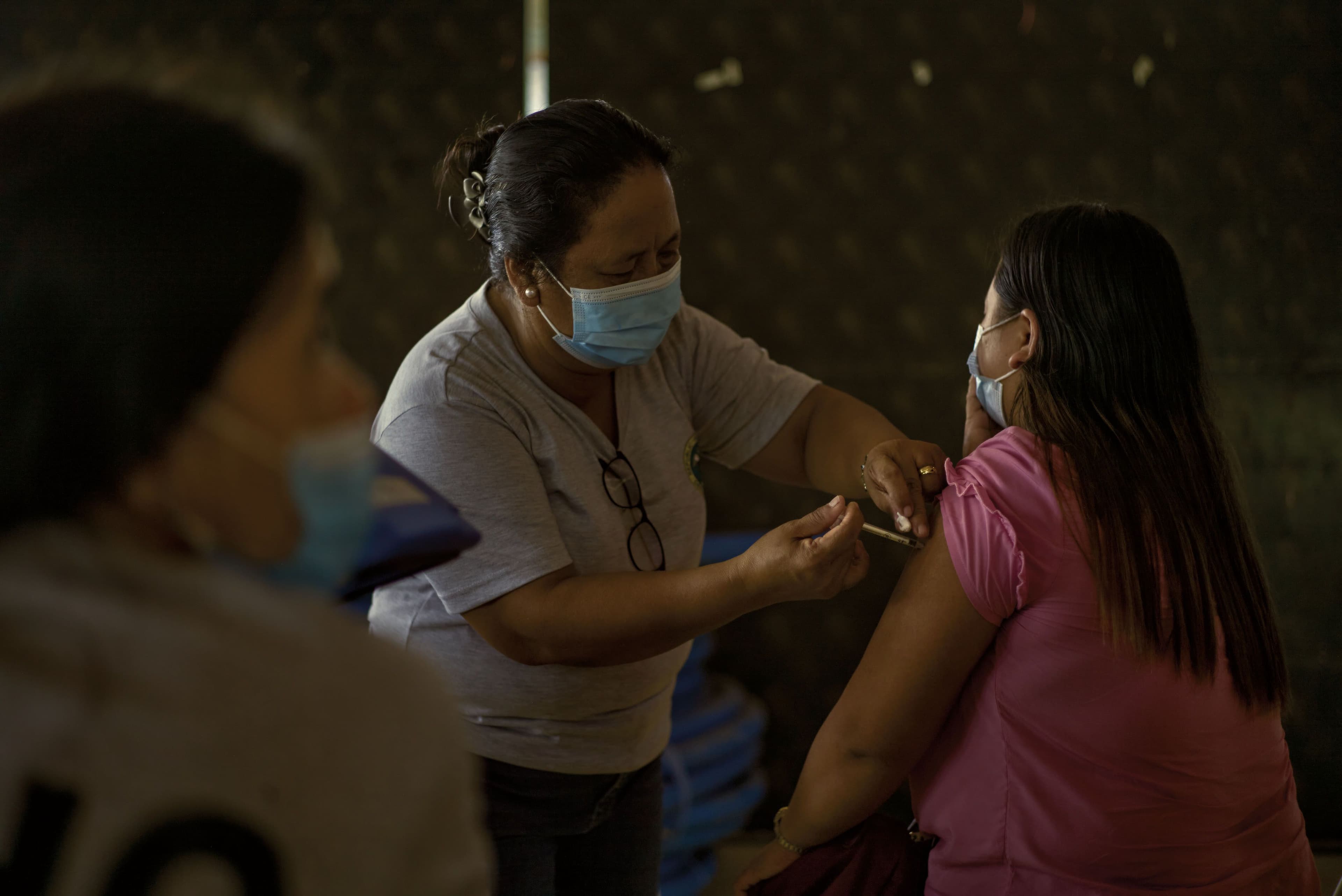
In the Philippines, vaccination drives are lagging: Less than a quarter of the population has been fully vaccinated, and cities are pausing their vaccination campaigns because supplies of shots are low. Vaccine hesitancy is a longstanding issue, in large part because a faulty dengue fever vaccine made by Sanofi was used on citizens in 2016, and partly because misinformation about coronavirus vaccines remains rampant. Meanwhile, the Taal Volcano is bubbling again, the country is in lockdown, and the president is threatening to jail people who don’t get vaccinated.
Though the road ahead for CURE Covid and the Philippines is long and uncertain, Taguiwalo allows herself to celebrate a few wins: The briefings have been well received, and the group successfully lobbied for two subsidies for the poor, called Bayanihan 1 and 2, which gave people below the poverty line up to eight thousand pesos ($160) per month. They’re currently working on a third. “The important thing is that the government has engaged us,“ Taguiwalo says.
To the best of her ability, she’s still out there protesting, most recently at a Philippine Independence Day rally. “I joined this June 12 protest because it was a motorcade,“ she laughs. “It helped that I didn’t have to walk.“ In these dark days, she adds, she’s working with younger people to keep the activist spirit alive. A quote, paraphrased from her own inspirational figure—83-year-old American activist Jane Fonda—keeps her grounded: “When I was young, I thought activism was a sprint. Then I got older and realized it was more like a marathon. Now that I’m old, I realize it’s a relay race.“
“Years may wrinkle the skin, but to give up enthusiasm wrinkles the soul,“ Taguiwalo says. “I have wrinkled skin, but I think my soul has not been wrinkled yet.“
Read this story and many more in print by ordering our second issue here.
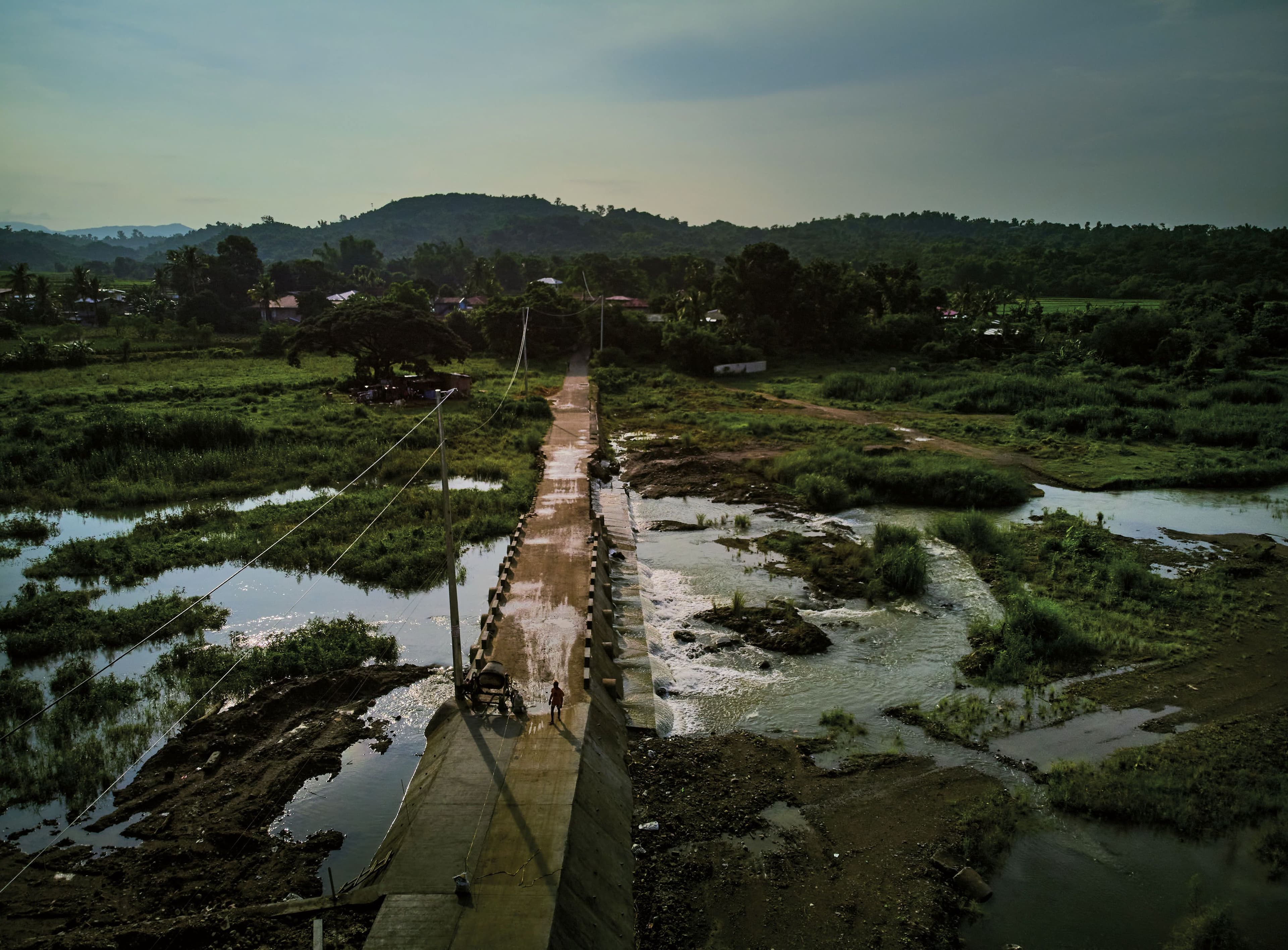
As a nonprofit arts and culture publication dedicated to educating, inspiring, and uplifting creatives, Cero Magazine depends on your donations to create stories like these. Please support our work here.






